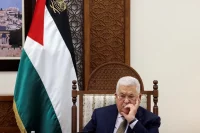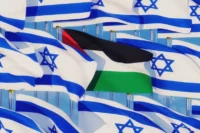
Our northern Gaza family will feed our neighbors — until we can’t
Two months ago, my family opened the first soup kitchen in Beit Lahia, my hometown in northern Gaza. We served a simple vegetable stew — a spin on traditional Gazan recipes like fogaiyya and sumagiyya — made with whatever vegetables we could get our hands on. On our first day, we fed 120 families. A local photographer snapped photos, and we even made the local news.
By now, the daily routine is dignifying and familiar. Our mother wakes at the crack of dawn to peel and prepare produce, my father sources spices, and I work as operations manager. By 7 a.m.,… Seguir leyendo »
















